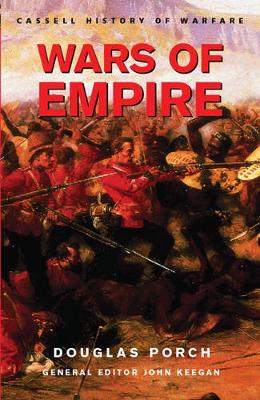Cassell History of Warfare S.
1 total work
The nineteenth century signalled the high renaissance of Western Imperialism with more and more territory falling under colonial rule. But the idea that indigenous forces were easily outclassed by European armies is deceptive. Native militias often defeated their European counterparts, and sometimes quite spectacularly. The British Army fell victim first to American rebels, then Afghans, Indian mutineers, and finally to the Boers. In Algeria the French were desperately overstretched, and the Russians suffered several humiliating reversals in the Caucasus. Maintaining control of overseas empires began to put an enormous strain on the home economies of all imperial powers. As more and more nations joined the race to acquire territory, and with the Great War looming, the empires of all nations began to look increasingly fragile. WARS OF EMPIRE is about more than mere clashes of arms. It is about clashes between civilisations, wars fought between peoples of radically different mentalities, different levels of political organisation, and of contrasting technological capabilities.
It chronicles the period of the great African land rush, the Russian advance over Central Asia, American imperialism and the expansion of the British Empire across the globe.
It chronicles the period of the great African land rush, the Russian advance over Central Asia, American imperialism and the expansion of the British Empire across the globe.
